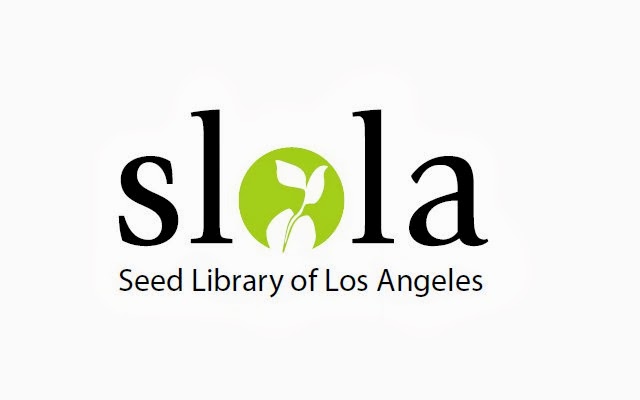Credit the Seed Library of Los Angeles and the people that make it happen with being ever so slightly ahead of the curve. It seems like Monsanto and other biotech firms are going to be facing a public that is increasingly unreceptive to being hoodwinked. Shrill cries that we need biotech to prevent world hunger now are being compared to studies that find GMO food causes documented harm to the animals that consume them (humans are in the class of critters called 'animals' lest you don't know).
First, Round Up Birth Defects! - the story is more notable in that it doesn't really address that Round Up causes birth defects but rather that regulators knew it caused birth defects as much as 21 years ago! It makes me sad that these corporations were able to keep that little nugget of truth out of the public eye for so long. Still, just on gut level, many people have decided that GMO food can't possibly be good for you.
One of the points that the producers of GMOs have always made is that genetically modifying plants in the lab was merely an extension of plant breeding that man has done since the beginning of agriculture. A quick perusal of the facts shows that this claim is truly stupendous in the leaps of logic it tries to take - there is nothing about genetically modifying DNA that compares to traditional plant breeding. No amount of traditional plant breeding would ever get genes from a completely other living entity into a plant's DNA. There is nothing in traditional plant breeding that messes with DNA in the same way as genetic modification and to try to define it as merely an extension of choosing plants that exhibit qualities we prefer is preposterous and insulting us with this argument needs to be stopped.
We know climate change is upon us. I have planted beets this week - they are a 'winter crop' in Los Angeles, but with the continued coolness of June (June is never HOT, but the cool has been a little too cool for me), I am not doing what I did last year. Last year, it was cool this late in June and I waited in vain for the heat that never came. I got 10% of the tomato harvest I got the year before. This year I am not going to repeat; I will plant a cool weather crops along side my heat lovers and figure I'll get something from one or the other. A report from the New York Times talks about the struggles we will be up against in feeding the exploding human population on this earth.
Finally, a paper that declares that Public Research, Not GMOs Is the Key To World Food Supplies. We come back to the central fact that the Seed Library of Los Angeles embodies: the best way to save seeds from contamination by genetic modification and its host of problems, is to grow seeds of edible species in the cities - away from modern farming practices that pollute food with poisons and allow contamination from genetic modification. The good news is that these negatives barely exist in the city (compared to farmland) and so we can grow our food and our plants to seed with a purity that cannot be obtained in out of the city.
SLOLA's next meeting will be July 10th at The Learning Garden at 2:00 PM. Please come out and support our work for the good of all of us - we will have a fresh boatload of seeds available to check out from our library and other fun things to share.
david


The original article on birth defects can be found via this link: http://www.scribd.com/doc/57277946/RoundupandBirthDefectsv5
ReplyDelete